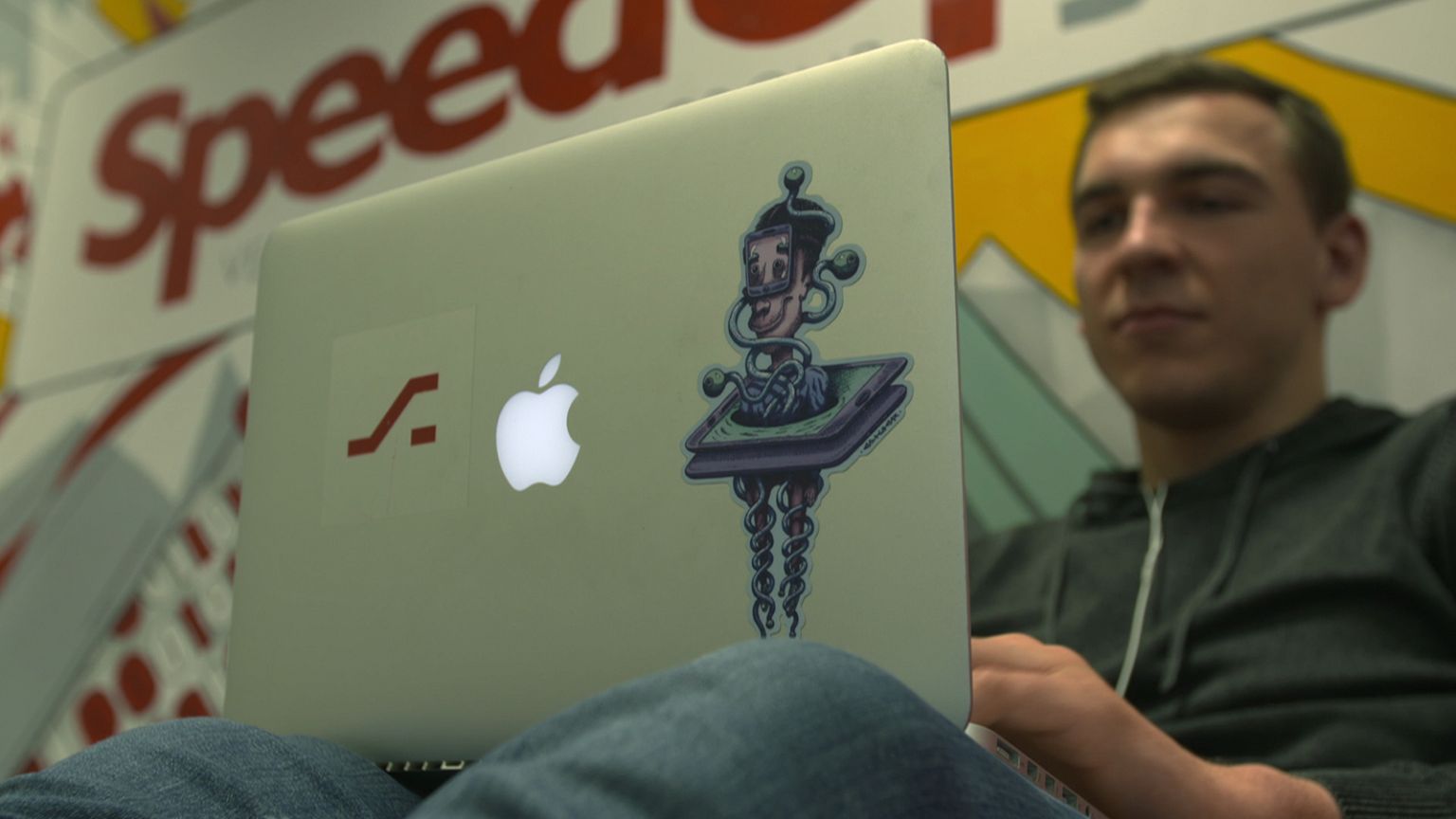Start-ups in Poland are riding the country's continuous economic growth. A survey by Startup Poland says that some of the main sectors include big data, IoT and biotech.
About half of Poland’s start-ups export abroad and about a quarter include foreign staff. Let’s take a look at some of the successful players as we focus on start-ups, in this Spotlight on Poland.
First, we checked out a start-up incubator. A Google Campus in a former vodka factory in Warsaw. It’s here that we find Quotiss, whose online system helps cargo companies coordinate their shipments. Started by a Polish former employee of a leading global shipping firm.
Quotiss CEO, Marcin Zarzeci explained what sparked his idea into fruition.
‘You might think it’s such a big industry, it’s very digitised, it’s very modern. It’s not. It’s quite offline, manual, and based on Excel spreadsheets. So what we do, we kill Excel spreadsheets in container shipping, we digitise it, bring it to the Cloud.’
And what’s it like working in a Google Campus?
‘It’s not always rosy, as sometimes people say it’s just cool stuff and you just do creative things. No, it’s hard work, but the atmosphere and the environment and the help from the whole ecosystem is inspiring. If you want to start a company, you have an idea, it’s a good time to do this in Poland.’
As part of our road trip criss-crossing Poland, we head for the Łódź area, southwest of Warsaw, to see another start-up incubator for high tech. United Robots is developing a cyborg with laser-guided navigation, for use in logistics, cleaning, stocking shelves in supermarkets, or sorting letters and packages. The robot can pinpoint thousands – even millions – of coordinates around it and in its path to determine what to target and what to avoid.
Dariusz Mankowski of United Robots showed us how one of his robots works.
‘It is mapping the environment and analysing it, using a laser that measures the robot’s surroundings, and then allowing the robot to map the surroundings in their memory. We had some pilots with the Polish postal service, and we can say that it succeeds in this environment.’
Moving on, we found a Polish finance company which accelerates other start-ups with promise. Three guys who made their money in advertising founded SpeedUp, including General Partner Bartek Gola, who showed us an e-book app they’ve invested in.
Legimi is an application which is quite similar to Spotify, but Instead of music, the app lends e-books for monthly fee.
‘We invest at the stage when a company has no revenue. That’s our business model. We mainly seek the great entrepreneurs, the great talents. So a combination of technical skills and entrepreneurial spirit and willing to fight and build great things.’
Bartek likes to do things differently to other investors and doesn’t see past failures as a negative in the people he looks to work with.
‘Failure doesn’t mean that you are wrong. Fifty percent of our companies fail, and that’s a part of our business model. If they are skilful, and if they manage to learn from their previous failures, that’s a great team for us.’
One SpeedUp, sped-up start-up that failed and tried again is a team developing a stethoscope and app that families can use. It’s called StetHome.
‘It helps doctors and patients to identify things that can be heard in our lungs, which is very important, especially for kids, whether we should use antibiotics or not.’
But what if you DO need a doctor? DocPlanner can help you find and book one through a system that includes reviews by other patients. And no, they don’t sell your data. It’s gone global, after acquiring a Spanish firm with ties to South America.
Peter Bialo is the CFO.
‘We basically have the marketplace for patients where they come in and make the bookings, and we have the software for the doctors, where they actually manage their patient flow. They can converse with the patients. We’re adding new features there, for example messaging between the patient and the doctor.’
The working environment the teams work in is set up to enable creativity, being relaxed and modern, but instil a sense of ownership in people’s work.
‘We call them team members. So we’ve got a team of 500 now. Now the product team for example has a very small remit, so they work on cross-functional teams, so they feel like their own little start-up.’
What if you don’t NEED a doctor, JUST a good night’s sleep? Nightly is an app that can replace those pills you might THINK you need. It’s gone through its first clinical trial and has about 4,000 users so far. Nightly is a team of two dozen people, including doctors and psychologists, networking with others abroad.
Lukasz Mldyszewski from Nightly showed us how it works.
_‘We use sound stimulation to enhance your sleep. We not only show how well you slept but we actually improve it. So that’s the biggest difference that we do.’
‘Somewhere we would love to be, in a couple of years, is to be approved as a medical device, and be able to be that third choice, instead of taking of pills, which have multiple side effects, you can launch the app, use it and fall asleep faster.’_
And what are their plans for the future?
‘There is interesting scientific data showing that it’s possible for example to stimulate memory during your sleep.’


















